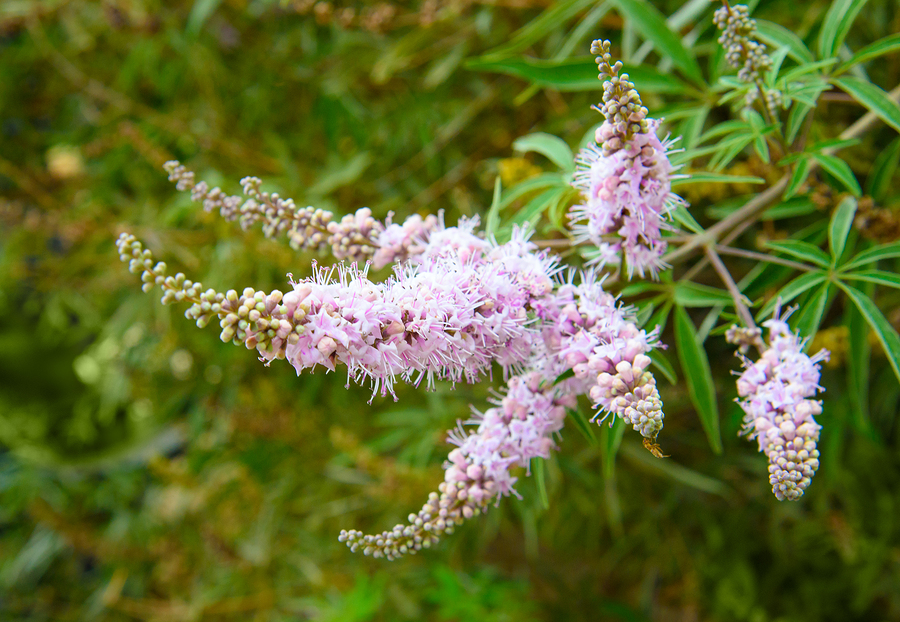Back in the Middle Ages, Chaste Tree Extract (Vitex agnus castus, aka Vitex or Chasteberry) was used by monks to decrease sexual desire (hence its name!). Today we know that this powerful herb – a medicinally potent brown berry about the size of a peppercorn – doesn’t impact sexual desire. But it does help manage reproductive disorders. Vitex is used for menstrual difficulties including PMS and PCOS, breast pain management, and infertility. It may also benefit women going through menopause.
Vitex does not supply hormones to the body; rather, it acts on the glands that control hormone production, namely the pituitary and hypothalamus. Ultimately, it helps balance the ratio of progesterone to estrogen, while slightly elevating progesterone level.
Chaste Tree is available as a liquid extract, in capsule and tablet form, and as an essential oil. It is considered safe for most people. However, women on birth control pills or hormone replacement therapy, or who have a hormone-sensitive condition (such as breast cancer) should seek medical consultation before taking this herb. Also, it should not be used by persons taking antipsychotic drugs or medications for Parkinson’s disease. Your holistic health care provider is the best source for information on Chaste Tree and the appropriate use for your health concerns.
References
- NCCIH.gov. “Chasteberry.” Accessed 15 Jan 2018: https://nccih.nih.gov/health/chasteberry
- van Die MD, Burger HG, Bone KM, et al. Hypericum perforatum with Vitex agnus-castus in menopausal symptoms: a randomized, controlled trial. Menopause. (2009) 16(1):156-163. Accessed 15 Jan 2018: http://www.ncbi.nlm.nih.gov/pubmed/18791483
- Mahady GB, Michel JL, Soni KK. Chaste Tree. In: Coates PM, Betz JM, Blackman MR, et al., eds. Encyclopedia of Dietary Supplements. 2nd ed. New York, NY: Informa Healthcare; 2010:129-135.
- AAFP.org. “Chasteberry.” Accessed on 15 Jan 2008: https://www.aafp.org/afp/2005/0901/p821.html

